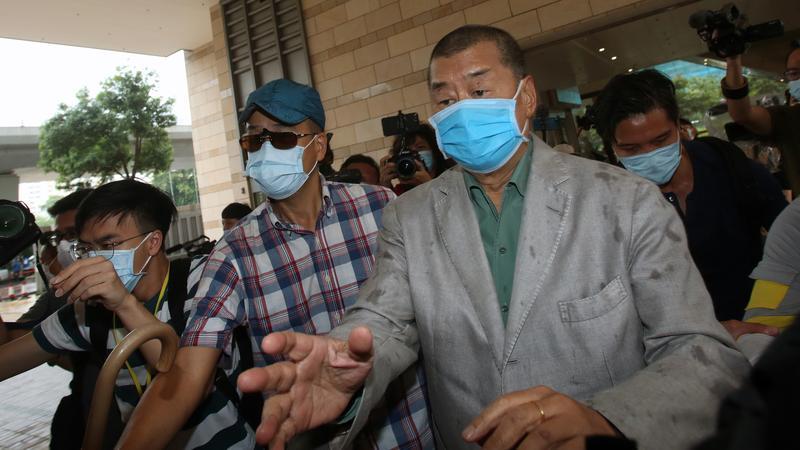
Hong Kong media tycoon Jimmy Lai Chee-ying arrives at the West Kowloon Magistrates' Courts in Hong Kong, Sept 3, 2020. (Photo: China Daily)
Jimmy Lai Chee-ying, one of those responsible for instigating rioting in the Hong Kong Special Administrative Region, was released on bail by the high court last week. Lai was earlier arrested under the national security law for Hong Kong for suspected collusion with foreign powers.
Many legal luminaries in Hong Kong have pointed out that Lai's release on bail does not comply with the provisions of the national security law. "Who is responsible if Lai, who has committed acts of felony, escapes or continues to wreak havoc in Hong Kong while on bail," some of them have asked.
Article 42 of the national security law for Hong Kong clearly stipulates that suspects and defendants shall not be granted bail unless the judge has sufficient reasons to believe that they will not continue to commit acts endangering national security. However, if someone like Lai, who has been charged with a serious offense under the law, can be released on bail, then one wonders who cannot be released?
Lai is a valuable pawn for some external anti-China forces, and his release could make it easier for him to flee Hong Kong. The fact that many other instigators of the rioting in Hong Kong have fled after being released on bail indicates that there is a high risk of Lai jumping bail too.
Besides his release on bail, there is a jurisdiction issue concerning Lai's case that also merits attention. Article 55 of the national security law for Hong Kong stipulates that the Office for Safeguarding National Security of the Central People's Government in the HKSAR shall exercise jurisdiction over crimes against national security.
Lai has been an important accomplice of the United States. For a long time now, he has not only publicly called for foreign sanctions against Hong Kong on the internet and in the media, but also privately met foreign politicians with this agenda. He did not stop doing so even after the national security law was implemented in the SAR.
Lai's case is a landmark case concerning national security in Hong Kong. If Hong Kong's judiciary fails to deal with it impartially and in accordance with the law, it will have a huge impact on the rule of law and public good in the city.


